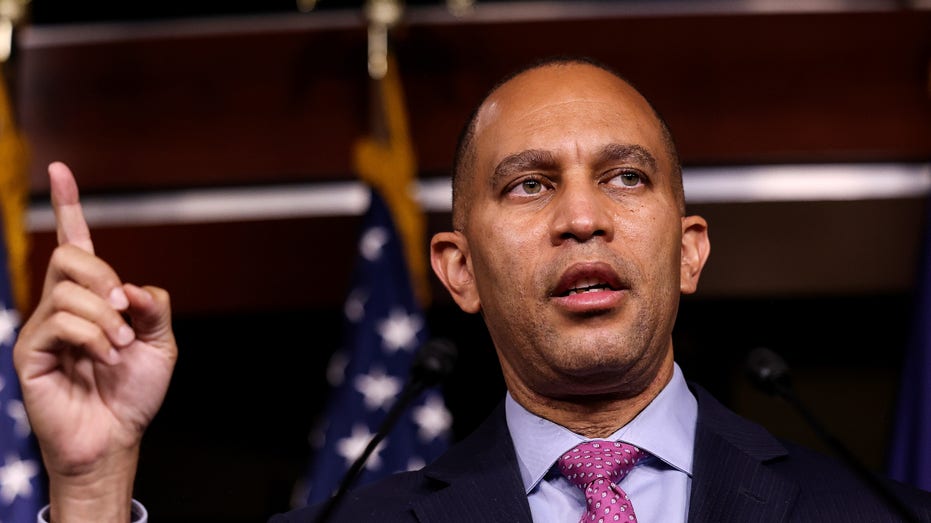
During a recent statement, Hakeem Jeffries, the Democratic leader in the House of Representatives, reiterated a controversial claim regarding the impact of the Defending Women and Girls in Sports Act. Jeffries suggested that banning transgender athletes from participating in girls’ sports would “unleash” sexual predators upon young female athletes. This assertion has raised eyebrows and sparked significant debate across various platforms.
Jeffries made these remarks while discussing the implications of the proposed legislation which seeks to prevent transgender girls from competing in female athletic events. Critics of the bill argue that it fosters discrimination, while supporters maintain it aims to protect the integrity of women’s sports.
In an environment where discussions about gender identity and sports are increasingly polarized, Jeffries’ comments have not gone unnoticed. He stated, “This legislation will not only discriminate against trans girls, but may also put cisgender girls at risk.” The assertion seems to link the presence of transgender athletes with increased danger for their peers, a relationship that many experts dispute.
To unpack the validity of Jeffries’ claim, it’s essential to examine what studies and sports officials have indicated about transgender participation in athletics. Research has increasingly shown no inherent link between transgender athletes and an increase in sexual predation or violence.
For instance, a study published in the Journal of Sport and Social Issues in 2021 assessed numerous cases surrounding transgender participation and found that no substantial evidence correlated between the two. In addition, the NCAA and numerous collegiate athletic organizations have established guidelines that allow for transgender athletes to compete, indicating that these policies are grounded more in inclusion than in any potential risk.
The claim that trans athletes pose a threat mirrors fears surrounding issues like opening restrooms to transgender individuals. Such parallel arguments have emerged in various contexts, suggesting that allowing transgender individuals access to facilities corresponding with their gender identity could lead to a rise in sexual crimes.
However, studies across the country have consistently failed to show valid instances of harm resulting from inclusive policies. Leading organizations such as the American Psychological Association have reinforced that gender identity should not be a basis for discrimination, underscoring that the focus should be on the individual’s behavior rather than their gender identity.
Furthermore, experts emphasize that suggesting bans on trans athletes will safeguard girls is misguided. Dr. Emily R. Smith, a sociologist specializing in gender studies, explains: “This rhetoric distracts from the real issues of safety in sports, which predominantly relate to coaching practices, training environments, and protective measures, not the gender identity of the athletes involved.”
As debates like this one intensify, it is clear that lawmakers must approach sports legislation with caution and a commitment to factual evidence. Casually invoking safety concerns, as has been seen with Jeffries’ claims, may misguide public opinion and policy.
Despite the contentious nature of this topic, it’s notable that not only Democrats like Jeffries weigh in on this subject. Republican lawmakers have also introduced similar measures pointing toward safeguarding women’s sports. The intersection of gender identity and athletics is an evolving issue that calls for thoughtful consideration rather than fear-based rhetoric.
As the conversation surrounding transgender rights in sports continues, advocacy groups, athletes, and legislators must strive to ground their discussions in evidence and respect for all participants. Misconceptions may lead to harmful policies that serve neither girls nor the integrity of sports.
Ultimately, focusing on the experiences and safety of all athletes can foster a more inclusive and positive sporting environment. Moving forward, ensuring that all voices are heard, especially those of transgender youth, will be crucial to developing fair and effective policies in sports.
Reference: Source Article

